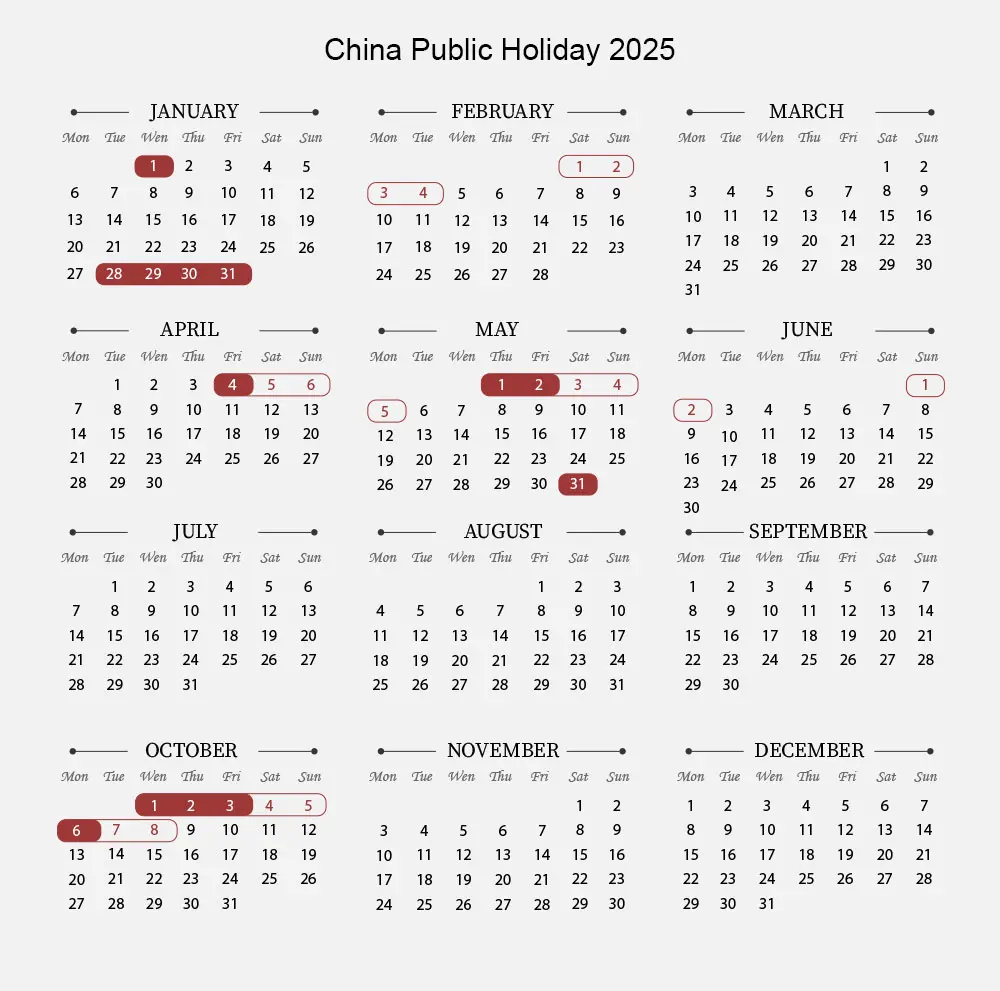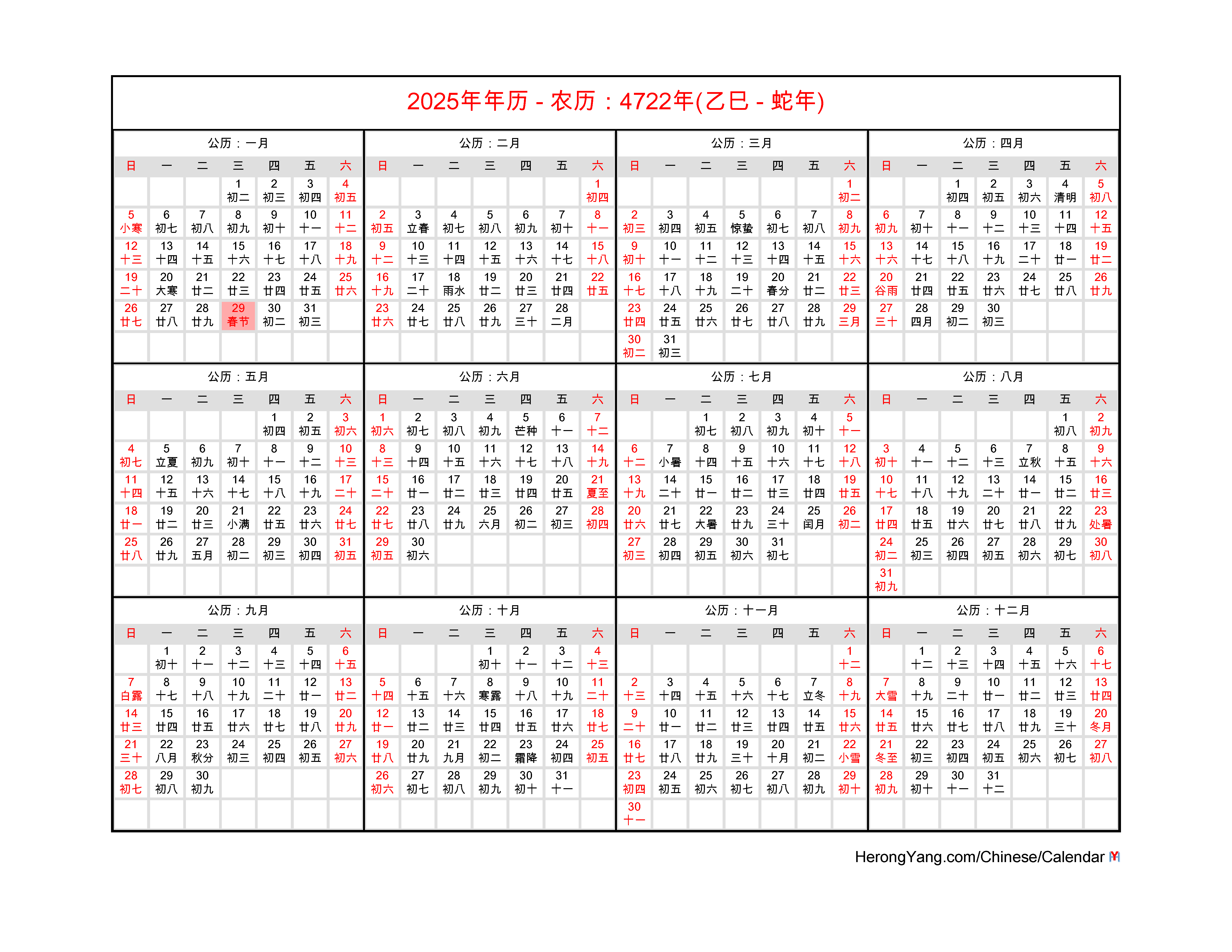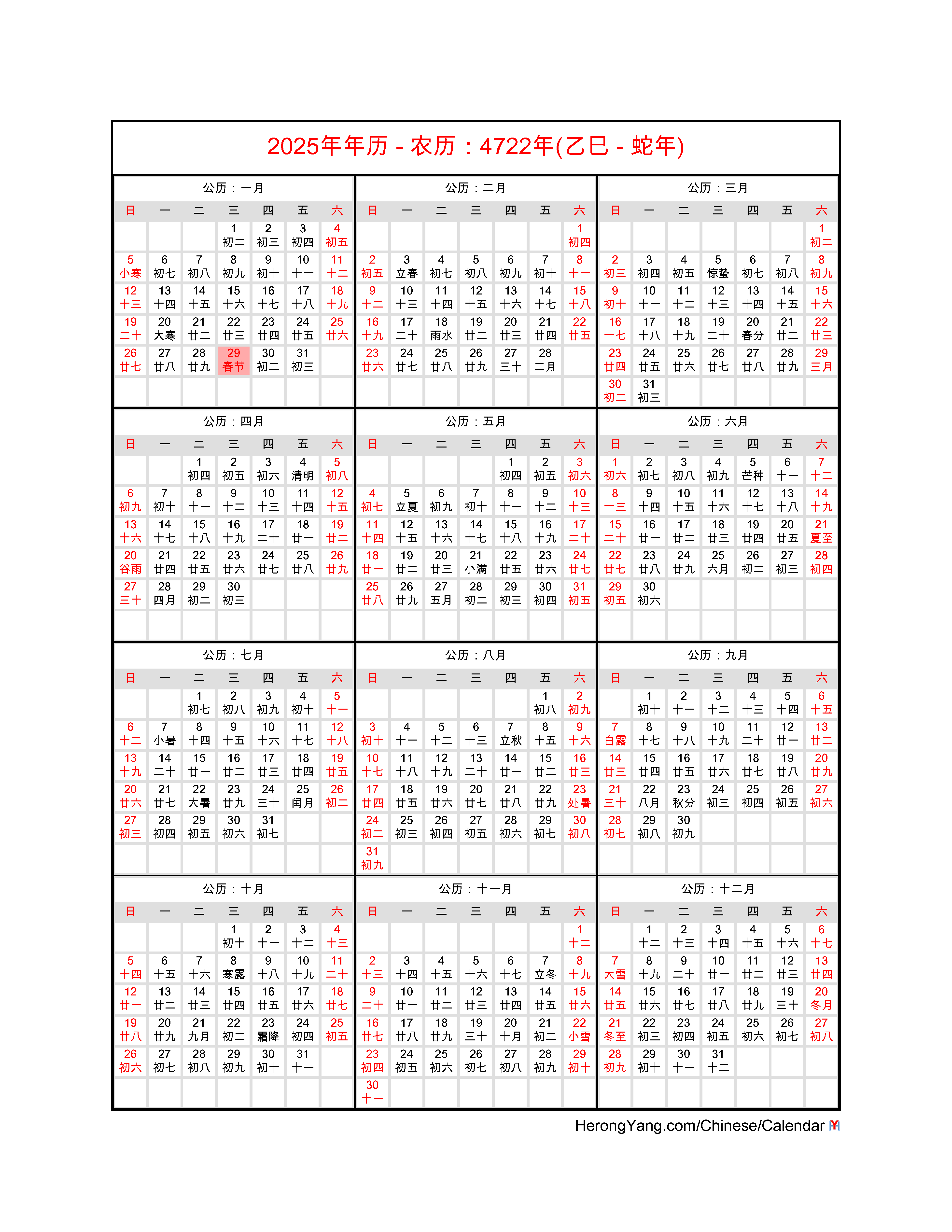Navigating China’s Public Holidays in 2025: A Comprehensive Guide
Related Articles: Navigating China’s Public Holidays in 2025: A Comprehensive Guide
Introduction
With enthusiasm, let’s navigate through the intriguing topic related to Navigating China’s Public Holidays in 2025: A Comprehensive Guide. Let’s weave interesting information and offer fresh perspectives to the readers.
Table of Content
Navigating China’s Public Holidays in 2025: A Comprehensive Guide

China’s public holiday calendar is a complex tapestry woven with cultural significance, economic considerations, and the rhythm of daily life. Understanding this calendar is crucial for anyone living, working, or traveling in China. 2025 presents a unique set of holiday arrangements, offering opportunities for both leisure and economic activity. This guide aims to provide a clear and comprehensive overview of these holidays, exploring their historical context, impact, and practical implications.
Understanding the Framework: Statutory Holidays and "Golden Weeks"
China’s public holiday system comprises two key elements: statutory holidays and "golden weeks."
-
Statutory Holidays: These are fixed days mandated by the government, typically commemorating significant historical or cultural events. They are observed nationwide, with most businesses and institutions closed.
-
"Golden Weeks": These are extended holiday periods created by combining statutory holidays with weekends. They are highly anticipated for domestic travel and family gatherings, creating a surge in economic activity.
China’s Public Holidays in 2025: A Detailed Breakdown
1. New Year’s Day (January 1st): This day marks the beginning of the Gregorian calendar year and is a statutory holiday. While it’s not traditionally celebrated with the same fervor as the Lunar New Year, it is becoming increasingly recognized as a time for reflection and fresh starts.
2. Chinese New Year (February 10th – February 16th): This is the most significant holiday in China, marking the beginning of the Lunar New Year. It is a seven-day holiday, starting with New Year’s Eve and culminating in the Lantern Festival. This period is characterized by family reunions, traditional feasts, and vibrant cultural celebrations.
3. Tomb Sweeping Day (April 4th): This statutory holiday, also known as Qingming Festival, is dedicated to honoring ancestors. Families visit graves, clean and decorate them, and offer food and incense as a gesture of remembrance.
4. Labor Day (May 1st): This international holiday celebrates workers and their contributions to society. It is a one-day statutory holiday, often used for leisure and short vacations.
5. Dragon Boat Festival (June 7th): This festival commemorates the legendary poet and statesman Qu Yuan, who is said to have drowned himself in a river. It is celebrated with dragon boat races, eating sticky rice dumplings (zongzi), and drinking realgar wine.
6. Mid-Autumn Festival (September 10th): This festival, also known as the Moon Festival, is a time for family gatherings and enjoying the full moon. It is celebrated with mooncakes, lanterns, and traditional performances.
7. National Day (October 1st – October 7th): This week-long holiday marks the anniversary of the founding of the People’s Republic of China. It is a significant holiday for national pride and patriotism, with large-scale celebrations and festivities.
Navigating the Implications: Travel, Business, and Social Life
China’s public holidays have significant implications for various aspects of life:
-
Travel: During "golden weeks," domestic travel surges, leading to crowded transportation, increased prices, and limited availability. Planning ahead is crucial for smooth travel experiences.
-
Business: Many businesses close during statutory holidays, impacting operations and supply chains. It is essential for companies to anticipate these closures and adjust their schedules accordingly.
-
Social Life: Public holidays provide opportunities for family gatherings, cultural events, and leisure activities. They offer a chance to reconnect with loved ones and experience the richness of Chinese culture.
FAQs about China’s Public Holidays in 2025:
1. Are all businesses closed during statutory holidays?
While most businesses are closed during statutory holidays, some essential services like hospitals and transportation may operate on limited schedules.
2. What is the best time to travel to China to avoid crowds?
The periods before and after "golden weeks" are generally less crowded, but it’s still advisable to book accommodations and transportation in advance.
3. How do public holidays impact the stock market?
The stock market is typically closed during statutory holidays, with trading resuming on the next business day.
4. Are there any cultural considerations for observing public holidays?
Respecting local customs and traditions is crucial. For example, offering condolences during Tomb Sweeping Day or engaging in dragon boat races during the Dragon Boat Festival.
5. How can I plan my travel around public holidays?
Researching the holiday calendar, booking accommodations and transportation in advance, and considering alternative destinations during peak travel periods can enhance your travel experience.
Tips for Navigating China’s Public Holidays in 2025:
-
Plan Ahead: Research the holiday calendar, book accommodations and transportation in advance, and consider alternative travel dates.
-
Embrace the Culture: Participate in local festivities, learn about the traditions, and enjoy the unique atmosphere of each holiday.
-
Be Patient: Expect crowds during "golden weeks" and be prepared for potential delays in transportation and services.
-
Communicate Clearly: Inform your business contacts and colleagues about potential closures or changes in schedules.
-
Stay Informed: Follow official announcements and news updates for any changes or adjustments to the holiday calendar.
Conclusion:
China’s public holidays in 2025 offer a unique opportunity to experience the country’s rich culture and vibrant traditions. By understanding the calendar, planning accordingly, and respecting local customs, individuals and businesses can navigate these holidays effectively and enjoy the benefits they offer. Whether it’s a chance for family reunions, cultural immersion, or simply a break from the daily routine, China’s public holidays provide a glimpse into the heart of its people and the rhythm of its society.








Closure
Thus, we hope this article has provided valuable insights into Navigating China’s Public Holidays in 2025: A Comprehensive Guide. We hope you find this article informative and beneficial. See you in our next article!